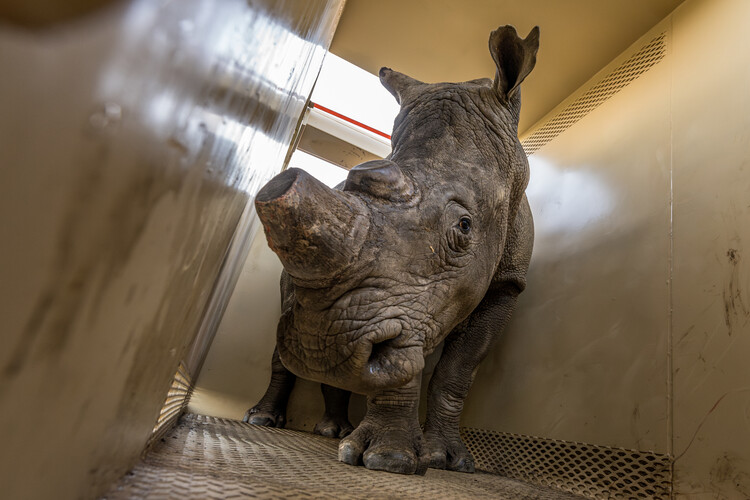
African Parks, a conservation organisation, has released the first of 2,000 white rhinos into the wild
By
Back in September 2023 we reported on how African Parks, a conservation organisation that takes on the rehabilitation and management of struggling national parks and other protected areas across Africa, had purchased Platinum Rhino. Established with the admirable goal of breeding rhinos in captivity and then releasing a certain number each year into the wild, Platinum Rhino was home to 2,000 southern white rhinos.
However, the project was not without controversy because, in order to fund the farm, the rhinos had their horns shaved in the hope that one-day international rules on the sale of rhino horn would change and Platinum Rhino could then flood the rhino horn market so making rhino poaching less attractive, and give the farm the income needed to continue operating.
In the end, though, the ban on rhino horn stayed in place, and Platinum Rhino could no longer afford to stay in business. At this point, African Parks stepped up and purchased all 2,000 rhinos. At the time, they announced that the breeding programme at Platinum Rhino would end and that over the coming decade, all 2,000 rhinos would be released back into the wild in suitable and secure environments.
Nine months later, the first group of 40 rhinos are finally heading out into the savannah of the Munywana Conservancy in Zululand, KwaZulu-Natal, South Africa, in support of the conservancy’s successful conservation and community efforts.

The Munywana Conservancy has a historic foundation: in 2007, 9,085 hectares of land were returned to its ancestral owners, the Makhasa and Mnqobokazi communities as part of South Africa’s land restitution process. Both communities requested that the land continue to be kept under conservation. Through this legacy, the Munywana Conservancy, now almost 30,000 ha, is upheld through a collaboration of community and private landowners, including the Makhasa Community Trust, the Mnqobokazi Community Trust, &Beyond Phinda and ZUKA Private Game Reserves.
According to a press release put out by African Parks CEO, Peter Fearnhead: ‘Munywana offers a secure environment to support this reintroduction, which will bolster their current rhino population, enhance its genetic diversity and support tourism, which is a key driver of the local economy. This first translocation was carried out by our team together with &Beyond Phinda, and Conservation Solutions, and with the financial support for the move provided by WeWild Africa’.
African Parks has long experience translocating animals — including rhino — and to ensure that the translocation is successful, the animals’ body condition and parasite adaptation will be closely monitored as they adjust to their new environment. In addition, the conservancy will implement its intensive security measures to ensure the safety of the 40 dehorned rhino.
The white rhino is under extreme pressure due to poaching and habitat loss, and hence the need for well-protected areas. While southern white rhino reached an all-time low of 30 to 40 animals in the 1930s, effective conservation measures increased the population to approximately 20,000 individuals by 2012. However, the dramatic rise in poaching has decreased their numbers to approximately 16,000 today. White rhino are mega-herbivores that are important in shaping savannahs which store approximately 30 per cent of the world’s terrestrial carbon. Where rhino are present, there is an increase in both flora and fauna; and thriving wild rhino populations are indicators of ecosystem renewal.
Related articles:




